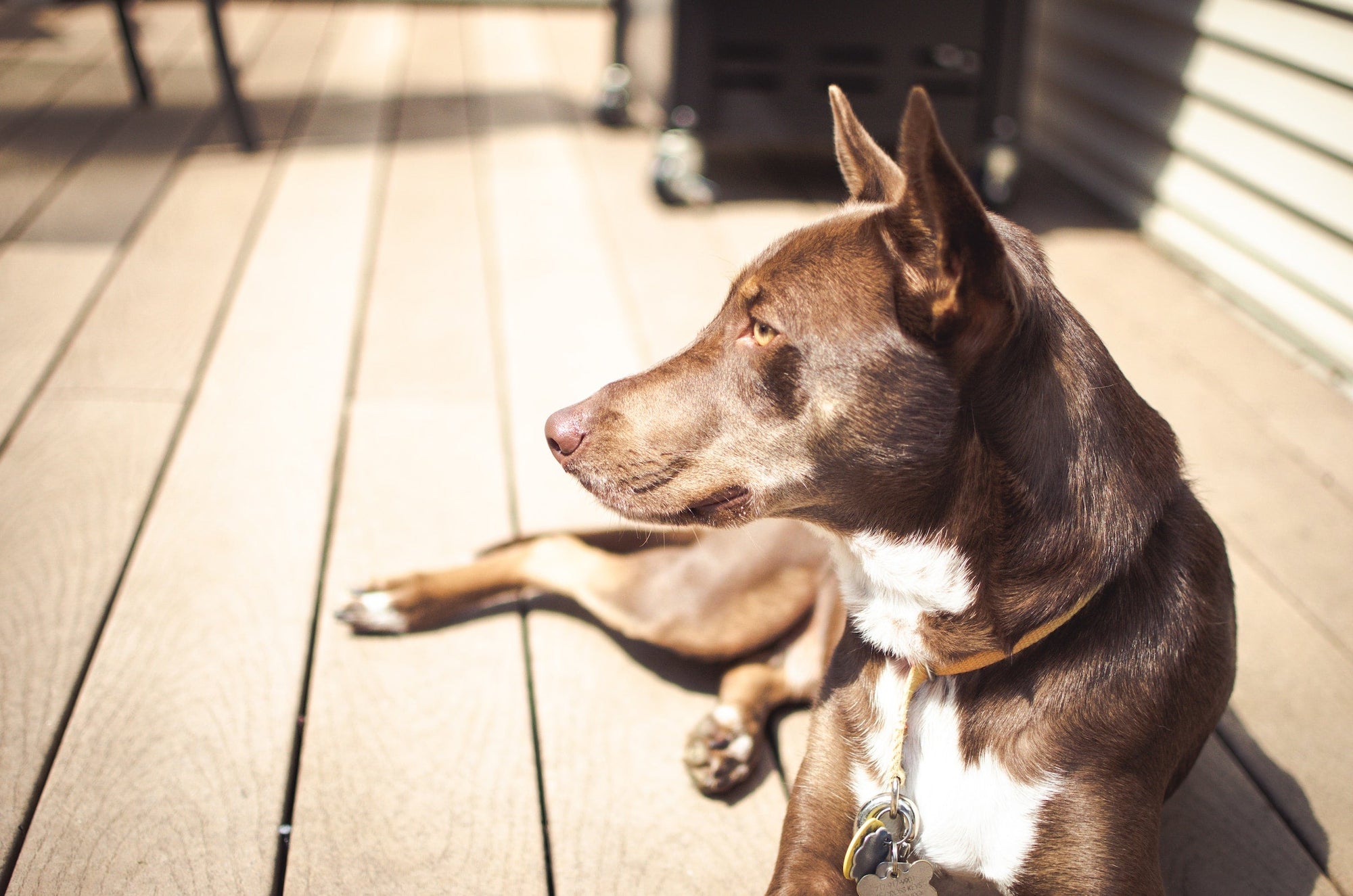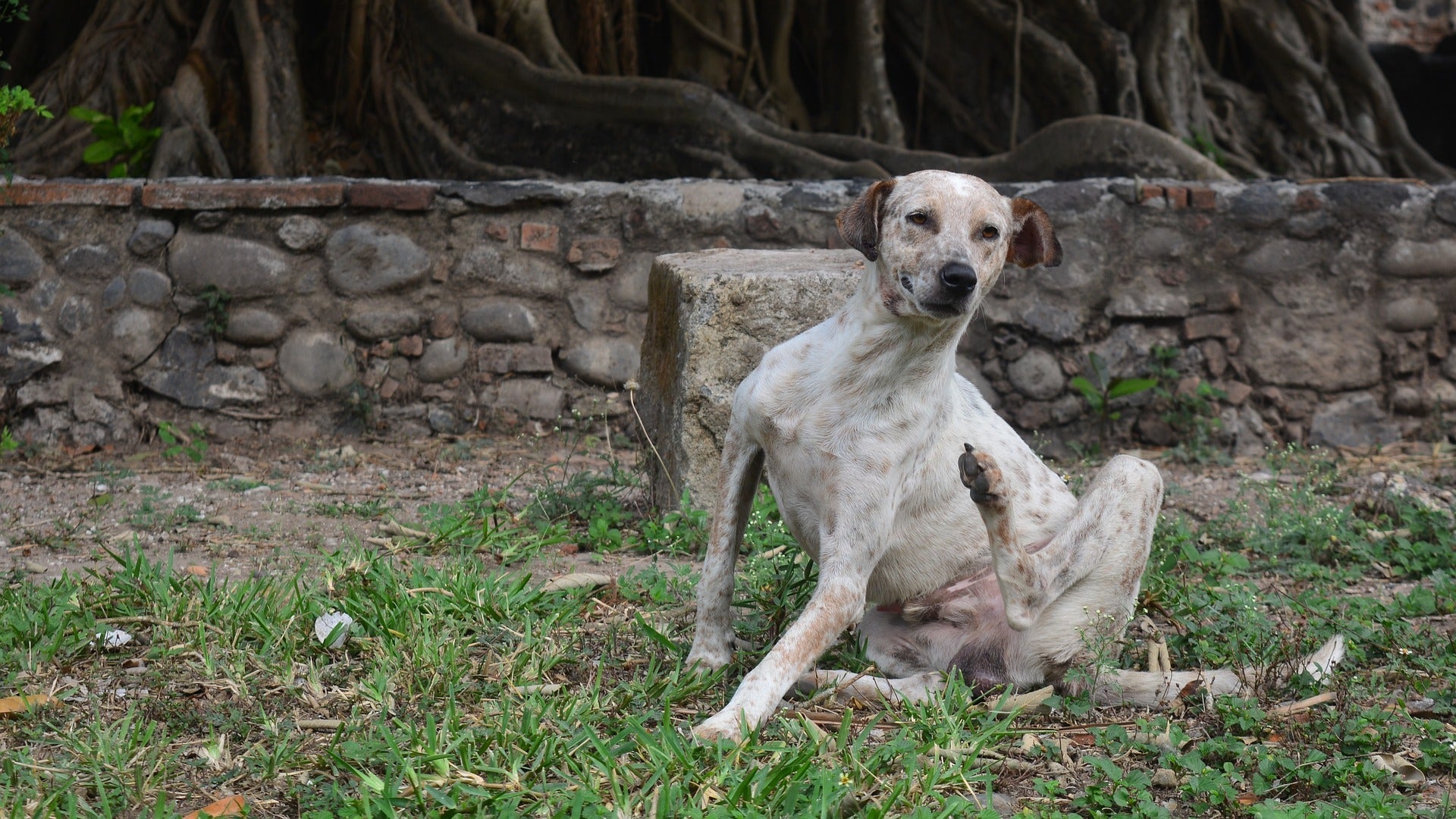As pet parents, we all want the best for our furry friends, especially when it comes to their health and wellbeing. But one area that often gets overlooked is the impact of diet on our dogs' skin health.
In our last blog post, we looked at 8 common causes of itchiness in dogs, from parasites and allergies to diet. Today, we're taking a deeper dive into how diet can contribute to itchiness and skin problems – specifically, whether kibble could be making your dog itchy.

The Importance of Diet for Skin Health
It's well established that a diet rich in nutritional fiber has a positive impact on gut microbiome health. But did you know that the same principle applies to your dog's skin health? Just like the gut, the skin has its own microbiome – a community of microorganisms that help maintain skin health and function.
Diet has always been used to manage skin conditions and allergies in dogs. This is typically done by restricting foods that the dog is sensitive to, or by adding fatty acids or other supplementation to support skin health. However, a new study shows that the type of diet can directly impact skin microflora, and thus skin health.
The Impact of Kibble on Skin Health
Kibble is a convenient and affordable option for many pet parents. But it's important to consider its potential impact on your dog's skin health. Skin diseases and other skin problems often indicate imbalances or changes in the microorganisms present on the skin. This suggests that using diet to manipulate skin microflora can be a beneficial way to help skin issues.
The more diverse the skin microflora, the healthier the skin. However, the type of diet your dog is on can significantly affect this diversity. This brings us to the question: could kibble be making your dog itchy? To answer it, let's take a closer look at the study mentioned above.
The recent study, "Fresh Food Consumption Increases Microbiome Diversity and Promotes Changes in Bacteria Composition on the Skin of Pet Dogs Compared to Dry Foods" was published in the journal Animals in July 2022.
In the study, eight dogs with no previous skin disorders were fed a fresh diet for 30 days in their homes. Researchers collected samples of their dogs' skin microbial communities and determined which species lived on the dogs. After a four-day transition period, the dogs were then switched to dry kibble for another 30 days. Researchers again collected skin microbiome samples.
The results were revealing. Microbe diversity was higher after the first 30-day period following the fresh diet compared to microbiome diversity after the kibble. Among those microbes, the proportion of Staphylococcus was higher, while Porphyromonas and Corynebacterium were lower on the skin of dogs after eating the fresh diet.
So, what does this mean for your dog's skin health? While more research is needed, the study suggests that diet does impact skin microflora, and that kibble-based diets may lead to lower microbial diversity and changes in bacteria composition on a dog's skin compared to fresh diets.
For dogs prone to skin issues or allergies, a diet high in processed kibble could potentially exacerbate skin problems or increase itchiness. But the good news is that the solution may be as simple as switching to a fresh diet that contains natural, whole ingredients. In the next section, we'll take a look at the benefits of fresh food for dogs with sensitive skin and explain how to make the switch.
The Benefits of a Fresh Diet for Your Dog's Skin Health
As the study showed, a fresh diet can have a positive impact on your dog's skin microflora. Fresh foods are often rich in fiber, antioxidants, and other nutrients that promote a healthy and diverse microbiome. This, in turn, can contribute to healthier skin. Some of the potential benefits of a fresh diet for dogs include:
- Fewer skin infections. A diverse, healthy skin microbiome helps prevent overgrowth of harmful bacteria that can lead to infections.
- Less itching and allergies. Balanced skin microflora is important for proper skin barrier function and immune regulation, which can help reduce allergic reactions and excessive itching.
- Shinier, softer coat. The nutrients in fresh foods promote hair growth and a healthy coat. Omega-3 fatty acids, in particular, can make a dog's coat shinier and softer.
Making the Switch to Fresh Food
If your dog suffers from itchiness and you're looking for ways to improve their skin health, you may want to consider transitioning to a fresh diet. Here are some tips for making the switch:
Gradually Introduce Fresh Foods into Your Dog's Diet
This can be done by replacing a small portion of their kibble with fresh ingredients, and then slowly increasing the amount of fresh food over time. A gradual transition can help avoid digestive upset, and it also gives your dog time to adjust.
Choose High-Quality Proteins and a Variety of Fruits and Vegetables
High-quality proteins like beef, chicken, and fish are important for a balanced diet. Along with fresh fruits and veggies, they provide essential nutrients and antioxidants that support skin health and overall wellbeing.
The best foods to feed your pet are living, raw, fresh and species-appropriate. These foods support your pet's health throughout their lifetime and protect them from illness and disease.
Supplement Your Dog's Diet with Coconut Oil
Coconut oil is beneficial to overall pet health and can be particularly beneficial for skin health. It has anti-inflammatory, antibacterial, antiviral, and antifungal properties that can help prevent skin infections and promote a healthy skin microbiome.
Coconut oil can also improve the health and appearance of your dog's coat. The medium-chain fatty acids (MCFAs) in the oil contribute to a shinier, softer coat, and can help reduce excessive itching and allergic reactions.
When supplementing your dog's diet with coconut oil, be sure to choose a high-quality, therapeutic-grade oil like CocoTherapy Organic Virgin Coconut Oil. Start with small amounts and work up to a daily maintenance dose to keep your dog's skin and coat healthy.
Is it Time to Change Your Dog's Diet?
If your dog is struggling with skin issues or allergies, it might be time to take a closer look at what's in their food bowl. Kibble, while convenient, may not be the best choice for dogs with sensitive skin. Instead, a fresh diet, rich in natural, whole ingredients and supplemented with coconut oil, could be the key to healthier skin and a happier pup!
Remember, every dog is unique, and what works for one might not work for another. That's why it's always a good idea to consult with a holistic veterinarian or a veterinary nutritionist before making significant changes to your dog's diet. They can provide personalized advice and ensure that your dog's nutritional needs are being met.



